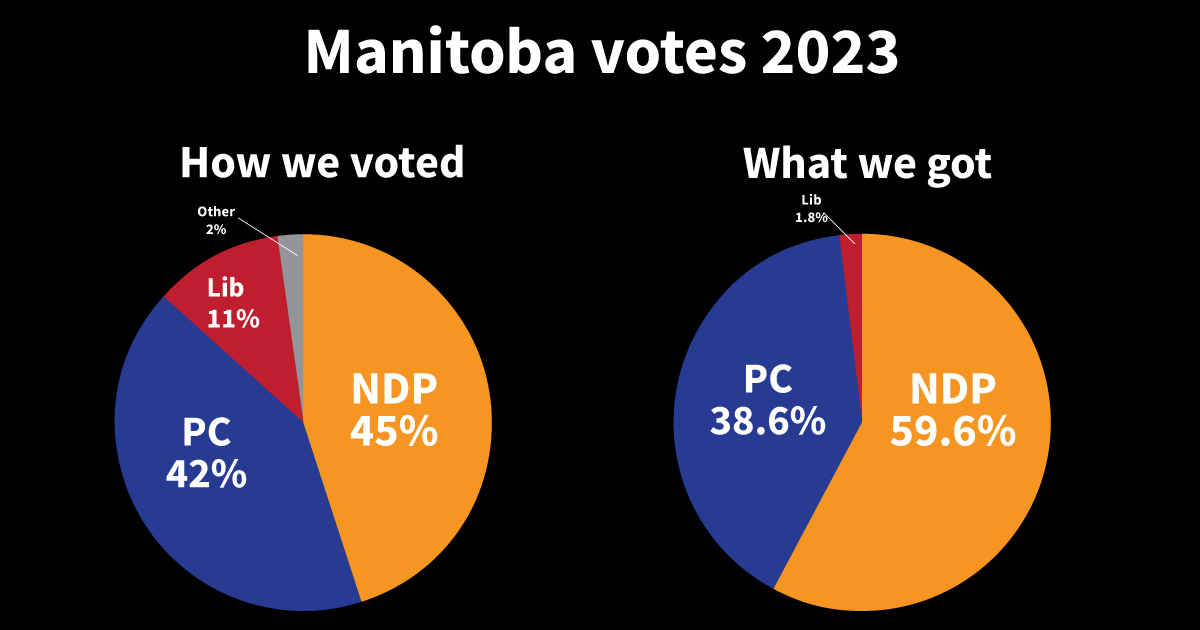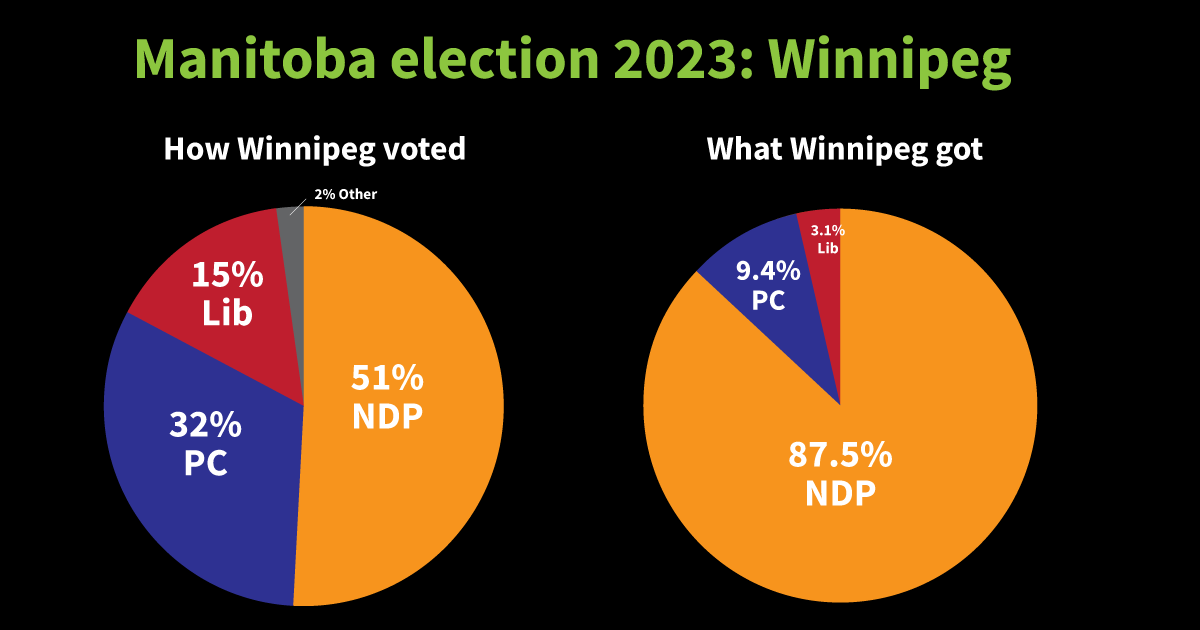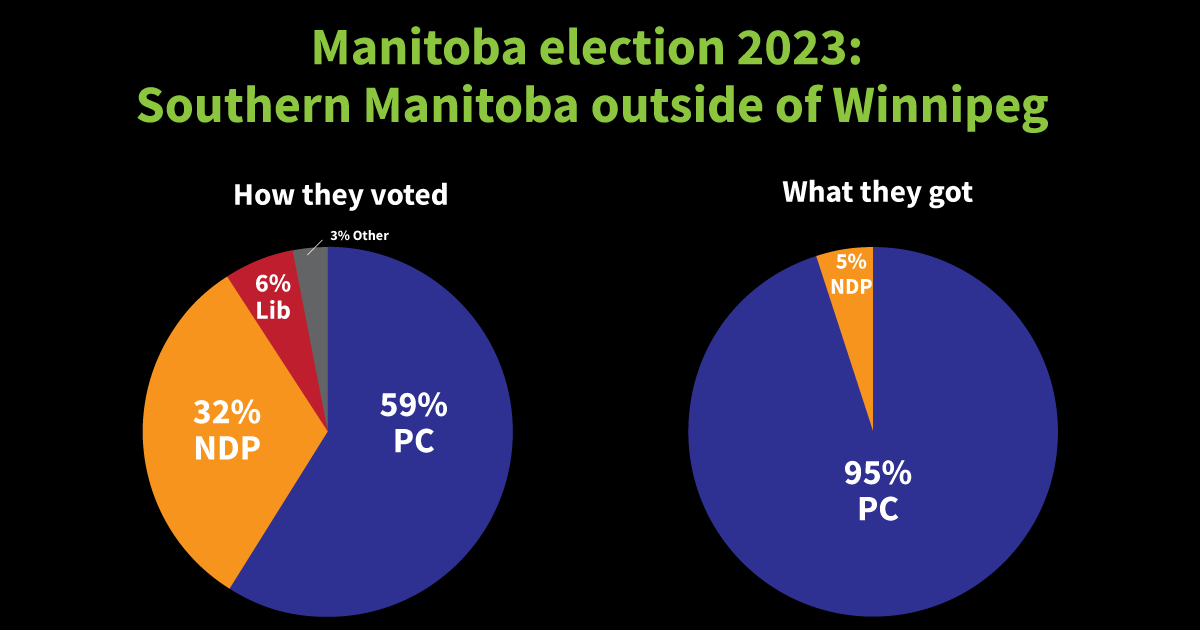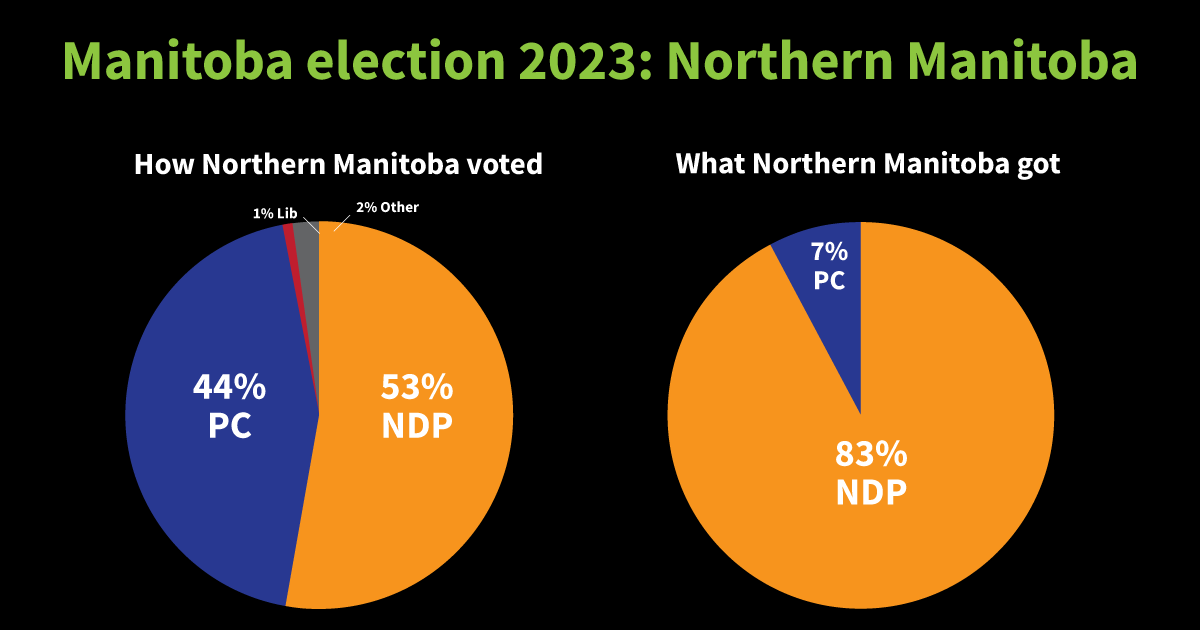
The party won 59.6% of the seats – and 100% of the power – with 45% of the vote.
The smaller parties were squeezed out.
In 2019, the Manitoba Liberal got 15% of the vote and 5% of the seats. Tonight, they were reduced to 11% of votes and 2% of seats.
In a polarized environment, first-past-the-post forced voters to choose between two big parties. As Angus Reid noted on September 20, three in five voters were motivated mainly by a desire to keep the other party out of power.
As a result, only one seat in MB will be going to any party other than NDP or the PCs.
First-past-the-post has not only delivered another false majority, it has entrenched a two-party system.
First-past-the post exacerbates Manitoba’s rural-urban divide
Rural NDP voters in Southern Manitoba are in a pitiful situation.
Despite NDP voters casting 32% of the votes in the 19 ridings in Southern Manitoba outside Winnipeg, they elected only one NDP MLA. Almost 50,000 NDP voters have little voice in their new government.
Progressive Conservative voters in Winnipeg are in the identical situation: they cast about 32% of the votes in Winnipeg, but have few champions: only three of its 32 MLAs.
Northern Manitoba looks equally unbalanced on the map: about 44% of its voters voted PC, yet they elected only one of its six MLAs.
The problem of a single party sweeping all the seats in a region is endemic to first-past-the-post, both at the federal and provincial levels.
In 2016, after being completely shut out of Atlantic Canada despite winning about 40% of the vote, the Conservatives came up with a “buddy system” scheme whereby Conservative MPs would be paired with regions thousands of miles away.
In 2019, every MP in Alberta and Saskatchewan with the exception of one NDP MP came from the Conservative Party, despite one third of voters choosing other parties. When Justin Trudeau appointed his cabinet, he had to appoint a “government advisor” from the West because there were no Liberal MPs from that area .
Federally and provincially, first-past-the-post makes us look more divided than we really are.
Winner-take-all voting leaves millions of voters feeling shut out, exacerbates the tensions between various parts of the country and magnifies the rural-urban divide.
With proportional representation, the MPs elected in each region of the country would closely match the popular vote, ensuring almost every voter has a representative who shares their values, and reflecting the diversity of political viewpoints in each region.
Enough of the buddy systems and unaccountable special appointees.
Regions don’t vote: people do. It’s time they were represented.
We call on all members of all parties to support holding an independent, non-partisan Citizens’ Assembly on electoral reform. Rural New Democrats, urban and northern Progressive Conservatives and Liberals across the province deserve fair representation, which only proportional representation can consistently deliver.
New Democrats now have an opportunity to live up to their party’s ideals by fixing the system so that it is fair to all Manitobans.



